TRACECA
TRACECA (acronym: Transport Corridor Europe-Caucasus-Asia) is an international transport programme involving the European Union and 12 member States of the Eastern European, Caucasian and Central Asian region.[1] The programme aim is to strengthen economic relations, trade and transport in the regions of the Black Sea basin, South Caucasus and Central Asia. It has a permanent Secretariat, originally financed by the European Commission, in Baku, Azerbaijan, and a regional office in Odessa, Ukraine. Since 2009 the organisation has been entirely financed by member countries.
 | |
| Formation | 1993 |
|---|---|
| Type | Economic co-operation organisation |
| Location | |
Membership | 12 plus 27 European Union members |
| Website | |
Origins
TRACECA was established in May 1993 in Brussels, upon the signing of a Multilateral Agreement on International Transport for the development of transport initiatives (including the establishment and development of a road corridor) between the EU member states, the Caucasus and Central Asian countries. The programme supports the political and economic independence of the former Soviet Union republics through enhancing their access to European and global markets through road, rail and sea.[2] The objectives of TRACECA were underlined by the Baku Initiative of 2004,[3] followed by a further ministerial conference in Sofia, Bulgaria, in 2006.
Membership

The following states currently participate in the TRACECA program:[1]




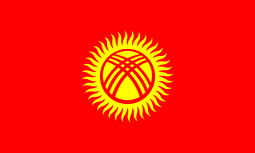

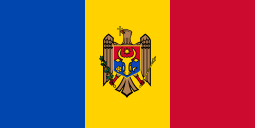


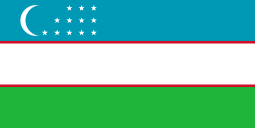
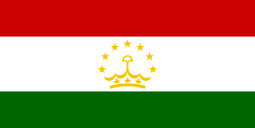
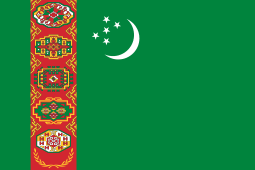
Plus the 27 member states of the
Iran officially joined TRACECA in 2009 after their request was accepted during that year's September Brussels meeting.[4] However technical assistance related to the project has not been provided to Iran since 2010 due to UN Security and EU sanctions.
In July 2016, Greece announced they are considering joining TRACECA activities as an observer.[5]
Secretary-General
The Permanent Secretariat of TRACECA was established in March 2000 in Baku, and inaugurated on February 21, 2001 with the participation of the then President of Azerbaijan Heydar Aliyev, together with Javier Solana, Christopher Patten, Anna Lind. The Secretary-General is a chief executive officer of the Permanent Secretariat. The first Secretary-General elected by the Intergovernmental Commission was a representative of Georgia, ambassador Zviad Kvatchantiradze.
The current Secretary-General is Mircea Ciopraga, appointed by the Intergovernmental Commission in January 2015.
| № | Secretary-General | Dates in office | Country of origin | Ref |
|---|---|---|---|---|
| 1 | Zviad Kvatchantiradze | 2000–2002 | [6] | |
| 2 | Abdurashid Tagirov | 2002–2003 | ||
| 3 | Lyudmila Trenkova | 2003–2006 | ||
| 4 | Rustan Jenalinov | 2006–2009 | ||
| 5 | Zhantoro Satybaldiyev | 2009–2011 | ||
| 6 | Eduard Biriucov | 2011–2014 | ||
| 7 | Mircea Ciopraga | 2015–present | [7] |
Projects
TRACECA has five working groups: maritime transport, aviation, road and rail, transport security, and transport infrastructure. Amongst its specific projects was the creation of a new bridge to replace and protect the heritage Red Bridge, located between Georgia and Azerbaijan.[8]
See also
- Baku Initiative
- Euronest Parliamentary Assembly
- Trans-European Transport Networks
- Transport in Europe
References
- "TRACECA Member Countries", Traceca.org, accessed 30 January 2017
- Dekanozishvili, Mariam "The EU in the South Caucasus:By What Means, to What End?", Georgian Foundation for Strategic and International Studies, January 2004, accessed 30 January 2017
- Henderson, Karen; Weaver, Carol (2010). The Black Sea region and EU policy: the challenge of divergent agendas. Ashgate Publishing. pp. 143–145. ISBN 978-1-4094-1201-4.
- "Iran joins TRACECA", UPI.com, 28 September 2009, accessed 30 January 2017
- Hasanli, Azad. "Greece keen to join TRACECA", Trend news agency, 11 July 2016, accessed 30 January 2017
- "Former TRACECA Secretaries General", Traceca.org, accessed 30 January 2017
- "Mircea Ciopraga elected as TRACECA Secretary General for two-term period", abc.az, 2 February 2015, accessed 30 January 2017
- "European and Caucasian transport specialists discuss the prospects of cooperation", Armenpress, 19 November 2012, accessed 30 January 2017